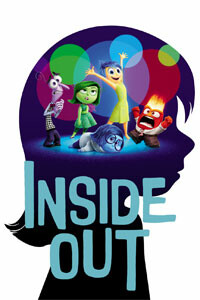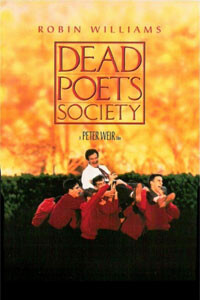Peace of Mind: Mental Health in the Movies

Blog/Commentary by Christopher Fenoglio, originally posted at UMC.org
I enjoy writing about inspirational and meaningful themes in modern films and am always pleased to find others who use film to illustrate complex ideas and issues.
“Peace of Mind” is a sermon series produced by the Metropolitan Memorial United Methodist Church in Washington, D.C., that uses modern movies to explore theological themes around emotional and mental health.
The series will explore “what it means to be emotionally healthy and how we live lives that are full of the Resurrection power of God.” This exploration is important, says the Rev. Charles Parker, senior pastor at Metropolitan, because:
- “When we don’t address issues of our emotional health in appropriate ways, those places become blocks to us and often for our communities as we seek to do the work that God has laid out for us.”
- “We continue in our society and in our churches to stigmatize issues around mental illness, and in that way, keep people who need help from finding the help they need to become healthier. We need to pay attention to the stigma we place on mental health and mental illness.”
Instead of examining the issues of mental health through a medical textbook, the speakers use popular films, which are more accessible and easier to understand, to illustrate their main points.
Note: You can watch a short clip from each film and listen to the entire sermon by clicking on the link below each movie poster.
Also, if you or someone you know exhibits traits like the ones discussed below, do something today. Professionals who can help are just a phone call away.” Call someone today!
Editor’s note: If your browser doesn’t support the embedded audio files of the sermons below, you can listen to them on the Metropolitan Memorial UMC website.
“Inside Out” Sermon by Rev. Charles Parker

References: Ecclesiastes 3: 1-8; Matthew 11: 16-17
This film explores the emotional life of an 11-year-old girl named Riley as she navigates the life-changing event of moving to a new city.
Riley’s emotions are personified by five characters in her “Headquarters:” Joy, Sadness, Fear, Disgust
Joy, says Parker, “is like a lot of Christians who work very, very hard to make all things happy and joyful.” But every moment along our path doesn’t have to be joyful. As we see illustrated in the film, many of our most happy “core memories” are preceded by moments of sadness.
“Part of our emotional health is integrating all of those emotions that sometimes seem unattractive and destructive. We find that they all have a place in who we are called to be,” says Parker.
“It is only through owning, embracing and acknowledging those unattractive (non-joyful) emotions that we allow God’s healing and Resurrection power to move in our lives,” he says.
“A Beautiful Mind” Sermon by Chris Simon

References: Romans 12:1-16; Wisdom of Solomon 17:1-8
Loosely chronicling the life and career of mathematician John Nash, whose dissertation at Princeton University shaped nearly every economic policy that followed it, “A Beautiful Mind” explores the effects of schizophrenia.
After his success in finding his “truly original idea,” Nash meets a CIA agent who needs his help in breaking coded Communist messages to win the Cold War. He becomes increasingly distant from his friends, colleagues and his wife Alicia.
However, we discover that Nash is not fighting Communism, but fighting
“The only thing that helps Nash return to the community,” says Chris Simon, summer ministry intern at Memorial, “is the persistent love of his wife Alicia. She makes the conscious choice that her unconditional love is going to be stronger than her strongest fear.”
Nash saw the world differently than so many people. “Too often,” Simon says, “we do not reach out or try to understand those people who see the world differently than us.”
In First Corinthians, Paul writes to the entire community of Corinth: “We are one body, not in spite of our differences, but, in fact, because of them. We cannot exist without each other.” “Only in the context of community,” says Simon, “can we take on the challenges that we face in this world.”
“Dead Poets Society” Sermon by Rev. Charles Parker

References: 1 Samuel 9: 1-2, 10: 20-24; Romans 12: 1-5
This film follows a group of privileged, young high school men at an elite boarding school as they begin classes with a new teacher, John Keating.
Keating encourages the boys in his class to explore the beauty and language of the world, and to find their own voice, rather than learning by memorization.
The film ends with some heavy issues (suicide, job loss), says Parker, but it is also “powerfully motivating and uplifting in terms of the transformation that happens when we engage our creative selves and let the Holy Spirit start to move in our lives in ways that we were blocking off before because of our own self-limitations.”
What does it take to set aside the busyness of this world and renew our minds? We should follow the words of Professor Keating: “Carpe diem – Seize the day, boys, and make your lives extraordinary.”
“Birdman” Sermon by Rev. Janet Craswell

References: Isaiah 40: 6-8; Philippians 2: 1-11
The last movie in our series, “Birdman or (The Unexpected Virtue of Ignorance)” is about the effects of fame, ambition, art, dissociation and ultimately about love.
Twenty years ago, Riggan Thomson starred in three superhero action movies as Birdman.
To launch a comeback and show off his acting skills, he writes and produces a Broadway play to star in. However, the Birdman is still in his head, goading him with comments of how bad an actor he is and empowering him with personal thoughts of strength and
Riggan craves success again and the fame and accolades that follow, for much of the same reasons why we post comments and photos on social media platforms. Yet in both cases, we risk isolating ourselves from others.
“Losing sight of love and surrendering to the desire for fame and recognition is a recipe for isolation and despair,” says Rev. Janet Craswell, director of Christian Education at Metropolitan.
“Fame and recognition
Note: If you or someone you know exhibits traits like the ones discussed above, do something. As Rev. Craswell states, “We have to stop letting people die just because we are confused or embarrassed about mental health. There are professionals who can help and they are just a phone call away.” Call someone today!
For more information about the sermons at Metropolitan Memorial United Methodist Church, visit their website.
